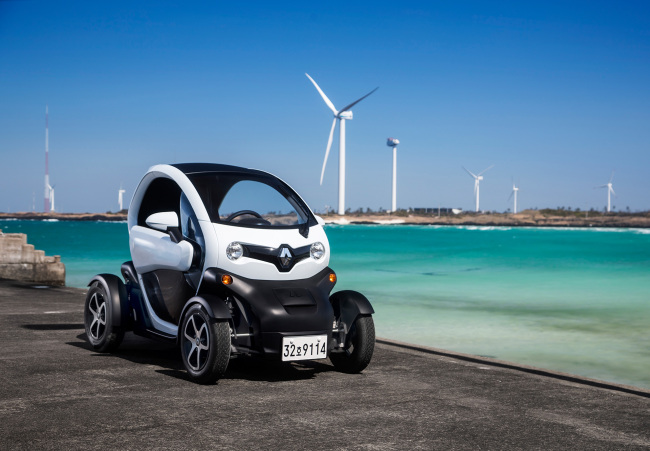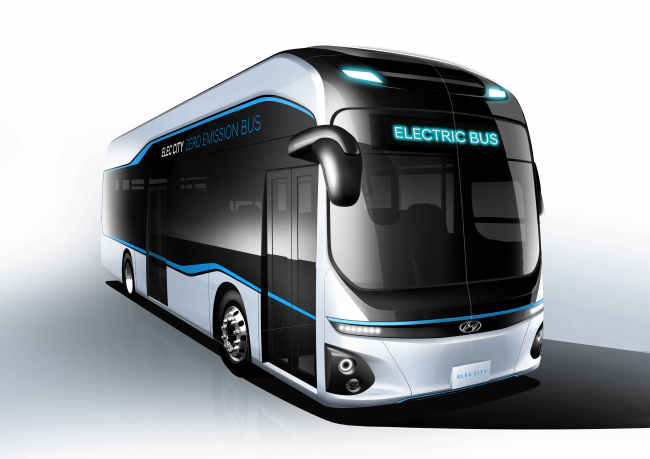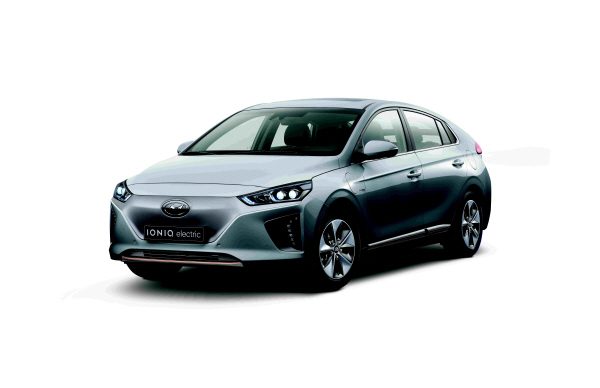The Korea Herald is publishing a series of articles delving into the economic policies and tasks expected of the new Moon Jae-in administration. This is the seventh installment -- Ed.
Electric vehicles could get a boost with the launch of the Moon Jae-in administration, which has vowed to foster environment-friendly cars as a new economic growth engine.
“I will put forth all efforts to promote electric vehicles, autonomous cars, renewable energy and other new growth industries” then presidential candidate Moon said during a televised debate last month.
Moon’s presidential campaign pledges included changing 70 percent of vehicles used by public institutions to eco-friendly ones, and subsidizing drivers who purchase EVs.
His promise to ban diesel vehicles on the roads by 2030 is also expected to encourage the expansion of EVs here.
Experts suggested that if Moon made progress in increasing the use of electric cars, it will have a trickle down effect on other sectors.
“The Moon administration’s drive for EVs so far seems to be headed in a positive direction,” said Kim Pil-soo, a president of the Korea Electric Vehicle Association.
“The government needs to help the public become familiar with EVs through incentives and promotions. In order for EVs to become popular, the public has to perceive them as electronics on wheels, like a cellphone, which drivers charge overnight and use during the day.”
Kang Seong-jin, an analyst of KB Securties, said Moon’s initiative for EVs will help resolve South Korea’s oversupply of electricity.
“When the number of EVs on the roads expand by 100 percent, electricity usage is expected to increase 32 percent. President Moon’s plans to promote EVs will help make use of the excessive electric power facilities here,” said Kang.
The country’s electricity generation capacity will rise by 12,475 megawatts by the end of this year, which is about twice the amount added last year, according to state-run Korea Power Exchange.
The construction of smart roads for autonomous cars and the expansion of charging units will ultimately heighten demand for electricity, said Kang.
The new administration’s stance on EVs triggered the Ministry of Land, Infrastructure and Transport to suggest a measure on expanding EV charging infrastructure in residential areas earlier this month.
The measure in essence mandates apartments with more than 500 households to install moveable EV charging units, the ministry said.
The number of charging stations is to equate to at least one-fiftieth of the total number of households.
President Moon’s push for EVs is anticipated to speed up local automakers’ development and the introduction of new EV lineups.
Renault Samsung Motors, the local unit of French automaker Renault S.A., is expected to release its ultra-small electric vehicle, dubbed the Twizy next month, the company said.
 |
Renault Samsung Motors' ultra-small electric vehicle, the Twizy. (Renault Samsung Motors) |
The first batch of some 1,000 units of the Twizy has already sold out in preliminary orders, as drivers in Seoul can buy the vehicle for some 6 million won ($5,377) on subsidies given by the Ministry of Environment and the Seoul City.
Hyundai Motor, South Korea’s No.1 automaker, will introduce an emission-free electric bus the Elec City at the Hyundai Truck and Bus Mega Fair later this month, the company said.
 |
Hyundai Motor's emission-free electric bus, the Elec City set for launch later this month. (Hyundai Motor Group) |
Hyundai has worked on the electric bus, powered by a 256 kilowatt-hour battery, for the past eight years and is seeking to commercialize it next year.
The country’s leading automaker launched the Ioniq Electric model last July, which is leading the growth of the local EV market.
 |
Hyundai Motor's electric vehicle, the Ioniq Electric. (Hyundai Motor Group) |
Hyundai Motor sold a total of 1,729 units of the Ioniq Electric in the first quarter of this year, which stood for about 75 percent of EVs sold here, data by the Korea Automobile Manufacturers Association showed.
“EVs currently account for a mere 0.2 percent of the total number of registered vehicles in South Korea, whereas the ratio stands at some 30 percent in Norway. The new government must cooperate with private businesses to accomplish Moon’s pledges,” Kim added.
By Kim Bo-gyung(
lisakim425@heraldcorp.com)









![[From the Scene] At this Starbucks, you need ID: Franchise opens store with view of North Korea](http://res.heraldm.com/phpwas/restmb_idxmake.php?idx=644&simg=/content/image/2024/11/29/20241129050068_0.jpg)
